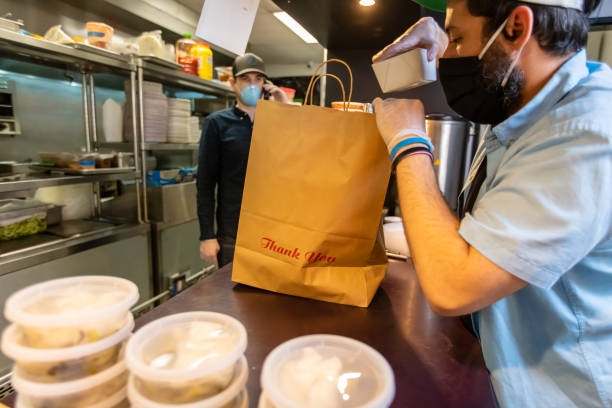US food industry groups are calling for exemptions from Donald Trump’s new tariffs, warning that higher duties on imported food will sharply raise costs for businesses and consumers. According to the Financial Times, the concern comes after the US president imposed sweeping tariffs on dozens of trading partners this month, pushing the country’s effective tariff rate to its highest level in decades.
Industry leaders say the food sector is especially vulnerable, as many products consumed in the US cannot be produced domestically in sufficient quantities. Instead of opposing tariffs altogether, lobby groups are pushing for targeted exemptions for specific food items.
“There are so many voices, so many products that say, ‘Well, we just need an exemption, because we’re unlike others’,” said Gavin Gibbons, chief strategy officer at the National Fisheries Institute.
Seafood Industry Sounds Alarm
Seafood groups argue that their sector is “fundamentally different” from others. Around 85 per cent of seafood consumed in the US is imported, and American waters are already fished at maximum sustainable levels. Strict regulations also make it difficult to expand domestic aquaculture.
The US seafood trade deficit reached $24bn in 2022, with shrimp among the most vulnerable imports. About 90 per cent of shrimp consumed in the US is imported, and India accounts for more than one-third of the supply. Trump is set to raise tariffs on Indian imports to 50 per cent this week, citing the country’s oil trade with Russia.
“We would like an exemption for all [seafood],” Gibbons said.
Fruits and Vegetables in the Spotlight
Fresh fruit and vegetable imports are also at risk. According to the International Fresh Produce Association (IFPA), the US imports $36bn worth of produce annually, with Mexico as the largest supplier, followed by Peru for fruit and Canada for vegetables.
“We are asking for fruits and vegetables to just be out of the tariff conversation,” said Rebeckah Adcock, vice-president of government relations at the IFPA.
The National Restaurant Association has also warned that tariffs on seasonal imports would drive menu prices higher. “As food and beverage products do not significantly contribute to [trade] deficits, we are hopeful that these products can be exempt,” wrote Sean Kennedy, an executive vice-president at the group, in a letter to US trade representative Jamieson Greer.
Complicated Exemption Process
Experts say the process of seeking tariff relief for food imports remains unclear. Nicole Bivens Collinson, a trade lawyer, noted that there is no set system in place for businesses to apply for exemptions.
Some food products have already been spared from higher tariffs. For example, when a 50 per cent tariff was placed on Brazil, orange juice and Brazil nuts were excluded, though coffee was not. A recent trade deal with Indonesia also allows exemptions for unavailable natural resources, while similar language exists in the US-EU trade framework.
Food imported under the USMCA trade deal with Mexico and Canada is subject to lower tariffs, providing some relief to the industry.
Without exemptions, food prices are expected to rise significantly. Andy Harig, vice-president at the Food Industry Association, warned: “Tariffs are designed to raise prices. Some of these are significant enough that they will raise prices by a very noticeable amount.”
Balancing Trade Policy and Food Security
The push for exemptions highlights a growing tension between trade policy and food security. On one hand, Trump’s tariffs aim to rebalance trade relationships and reduce deficits. On the other, the reality is that many foods consumed in the US cannot be produced domestically at scale.
From seafood to fruits and vegetables, industry groups are not disputing the overall tariff strategy but are asking for carve-outs to protect products that are essential to the American diet.


